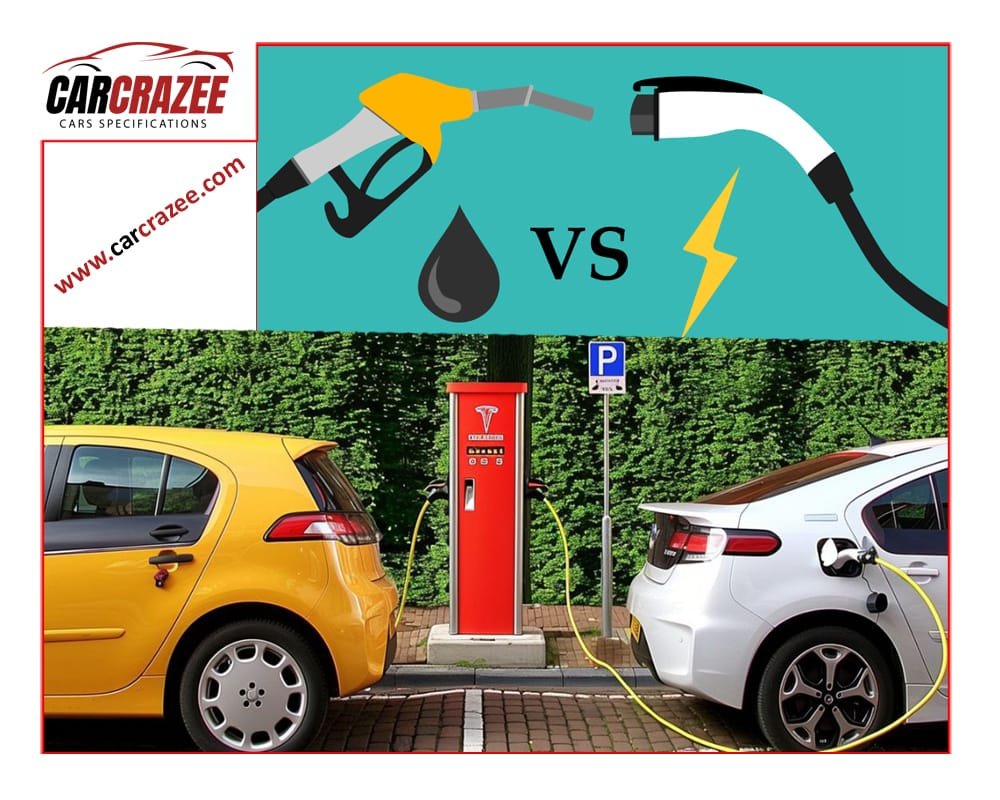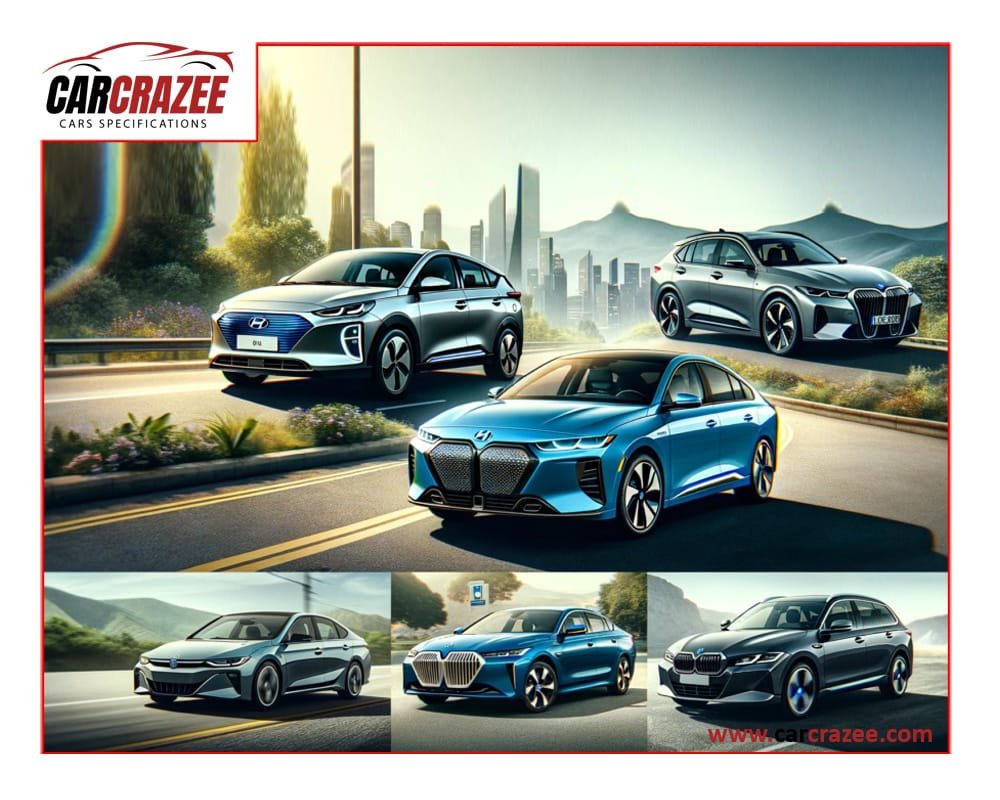As the auto industry shifts, more of us are also picking between hybrid and electric vehicles. The two choices are green compared with traditional gas guzzlers, but the inexact batteries and hydrogen fuel cells bring unique pros and cons. In this article, we weigh out the pros and cons of hybrids v/s electric cars to help you when selecting one over another.
What Are Hybrid Cars?
Hybrid Cars: They are the cars which have a combination of an average internal combustion engine (ICE) and electric motor. Both systems operate in parallel to enhance fuel efficiency and reduce emissions. Common Hybrids Hybrid Types
Full Hybrids (HEVs) – These vehicles will use the electric motor, gasoline engine or a blend of both.
The Plug-in Hybrid Electric Vehicles (PHEVs) — As they are called, have bigger batteries that can be charged through regular electric outlets. Performance wise, they can go further on electric power alone than full hybrids because their batteries are juiced up beyond what the engine are capable of recharging during normal driving.
What Are Electric Cars?
Electric Vehicles (EVs) are cars which run solely on electricity. These are free from a gasoline engine, driven by battery packs and an electric motor. Charge an EV by plugging it into an electric power source, but expect to receive nothing in the way of tailpipe emissions.
Pros of Hybrid Cars
1. Better Fuel Efficiency
A hybrid car can beat a traditional gas-powered vehicle any day of the week when it comes to saving at your wallet. When the hybrid combines electric motor and gas power it allows for significantly lower fuel consumption, particularly in city driving where slow-speed cruising can be offset by sending either or its small gasoline engine.
2. Lower Emissions
Most hybrids omit fewer emission than regular gas vehicles. They produce no tailpipe emissions when running on the electric motor, and even with the gasoline engine operating it runs more efficiently (and produces less CO2) than a mechanical all-wheel-drive system.
3. Extended Driving Range
Hybrids have the edge on electrics here, as they are not restricted to battery range. Once the battery is drained, they can switch to gas power and motor farther afield without worrying about finding somewhere to charge up.
4. less Charging Dependence
Full hybrids do not need to be plugged in, whereas plug-in hybrids can also operate as a traditional hybrid when the battery has run down. This makes them more practical for owners who may not have easy access to charging infrastructure.
Cons of Hybrid Cars
1. Complexity and Maintenance
This greater mechanical complexity stems from the combination of two power trains — electric and gasoline. While this can be a path to greater maintenance costs over the years, as both systems require service.
2. Higher Initial Cost
One reason that a hybrid costs more than the same car running on traditional gas power is added technology. Although fuel savings eventually offset this cost, the basic purchase price is often higher.
3. PHEVs do not have a large electric range.
The electric-only range for plug-in hybrids is typically 20-50 miles. Once the battery depletes, the car depends on its gasoline engine thus compromising efficiency against a real EV.
Pros of Electric Cars
1. Zero Emissions
No Tailpipe Emissions — Electric cars that are never to rarely charged with electricity produced using fossil fuels produce no tailpipe emissions, rendering them the option most kind to Mother Nature. The CO2 emissions are zero: In a local comparison with petrol cars driving an EV is = less pollution.
2. Lower Operating Costs
Electric cars are generally inexpensive to run compared with gasoline vehicles. For one, electricity is cheaper than gasoline — and two, EVs have less moving parts compared to internal combustion engine vehicles which logically means lower maintenance costs. No oil changes required, and wear on brakes is lowered thanks to regenerative braking systems.
3. Quiet and Smooth Ride
Electric cars drive silently and quietly The silent operation of an electric motor, free from the gear shifts that typify combustion-engine cars gives a smooth acceleration which many drivers enjoy without realizing.
4. Incentives and Rebates
Government incentives and rebates in several regions are used to promote electric vehicles. Those; in turn, can substantially lower the upfront cost of an EV-as well as bringing more vehicles across the quota.
Cons of Electric Cars
1. Range Anxiety
On the top of mind with electric cars is range anxiety, a situation where drivers are anxious that they will run out of juice before hitting some charger. Even though most current EVs feature ranges of 200 miles or even more, this is obviously something to keep in mind for long trips.
2. Charging Infrastructure
Charging infrastructure is getting better but nowhere near the range of gasoline stations. It can be quite difficult to find a charging station, especially in more rural areas and charge times differ depending on the type of charger used.
3. Higher Initial Purchase Price
Upfront, electric cars can be more costly than hybrids and traditional vehicles as well. While its operational costs are less than others, the cost of purchasing one makes it a stand out amongst prospective homeowners.
4. Battery Degradation
A new electric car can lose as much a third of its range if the battery degrades over time. The power supply is the accessory that will be hit by improvements in battery technology and batteries are expensive to replace.
Conclusion
Depending on your driving habits, the cost of ownership and environmental concerns will help you decide which is right for you: a hybrid or an electric car.
The Most Versatile Range: A hybrid is going to be beneficial for those who drive both short, and long distances where fuel efficiency meets vehicle range. With these plug-in hybrids you can rely on internal combustion engines while also offering to leave the fully electric end of the car without feeling left out in this city landscape.
Aside from everyone else, electric cars are great for those of you who want to spend time reducing their carbon footprint while not completely wasting your life during the charge ages. As zero-emission and economical transport, EVs can be considered the next generation of sustainable driving.
They all have pros and cons, but which is the best for you will largely depend on what your lifestyle?



